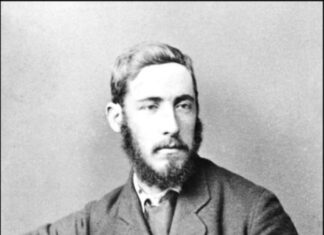REX has written another open letter to its customers.
Blaming a global pilot shortage for its woes, Rex claims it will redouble efforts to employ pilots, review services and cut more flights wherever possible.
When flights are cancelled at the last minute, Rex wants “support, understanding and indulgence” from customers.
Last week, in a letter to this newspaper, Rex reiterated its opposition to a multi-million dollar upgrade at the Mount Gambier Airport.
But let’s roll back the clock.
Forty years ago, similarly populated Mount Gambier and Alice Springs used glamorous tin sheds for airports.
Both towns had economic support from surrounding primary industries and a burgeoning tourism industry.
Alice had Uluru 467km from the township, while gaps and gorges were a little closer.
Mount Gambier had an unexplainably Blue Lake at its heart, natural icons like Princess Margaret Rose, Tantanoola and Naracoorte Caves within 100km and the Coorong 240km away.
Today Alice Springs still has a similar population to Mount Gambier, several four star hotels and a comparatively glamorous airport with Qantas and Virgin scheduling daily flights to most Australian capital cities.
But Mount Gambier?
Flight crew shortages, aircraft maintenance issues, declining customer support and trading losses were listed in early 2008 as reasons why our much loved O’Connor Airlines had fallen into voluntary administration.
Rex had a monopoly and within three months had slashed eight services to and from Mount Gambier, citing “pilot shortage”. That was 10 years ago.
And Rex later in 2008 announced a net profit of $24.343m and a final dividend of 6.6 cents a share.
Sydney-based Rex is Australia’s third largest airline and has been operating for 16 years.
In 2014, Rex wrote an open letter to all regional councils and airport owners.
“The aviation industry is in crisis,” wrote Rex’s network strategy and sales general manager Warrick Lodge.
“Not since the Ansett collapse in 2001 have we witnessed this much turmoil in the Australian aviation industry.”
He said regional airline routes had no economy of scale compared with Qantas and Virgin, and called on regional councils and airport owners to abolish the annual CPI increases on passenger taxes.
“Air services are no less important than roads and bridges to the socio-economic fabric of the community and yet some councils upkeep the latter at great cost while somehow feeling that airports, gifted to them by the Federal Government, need to generate profits,” Mr Lodge said.
“It is in the interests of all stakeholders – the local council, the airport, the community and the airlines – to collectively work together so that regional airlines can survive this crisis.”
In February this year Rex was declared the nation’s most profitable airline with a first half year Profit Before Tax (PBT) of $13.8m on a $151m turnover.
No one argues Rex needs to make a profit in order to keep its 50 aircraft in top order as well as financially reward its crew, train pilots and maintain a good working environment for employees.
But perhaps the focus of our civic leaders should be on attracting some five star hotels and establishing an airport upgrade for Qantas and Virgin.
• Chris Oldfield can be contacted by email at christobel47@bigpond.com



![[READER COMPETITION] – Win OUTBACK COMEDY Tickets at Robe or Mt Gambier](https://borderwatch.com.au/wp-content/uploads/2026/01/outback-comedy-100x70.png)

